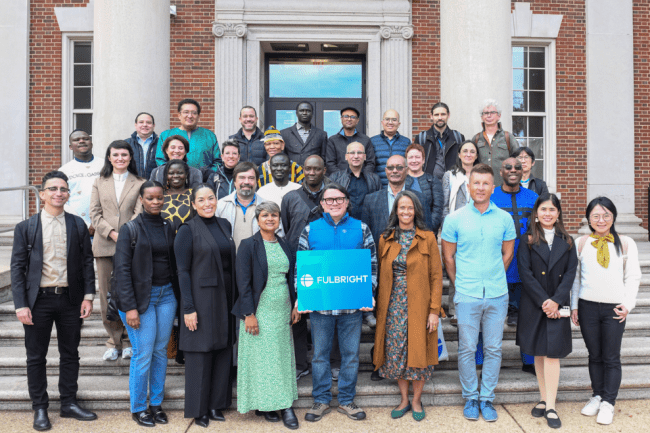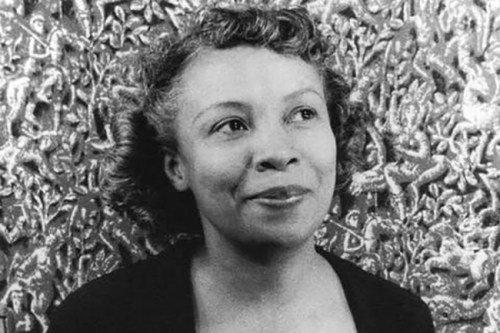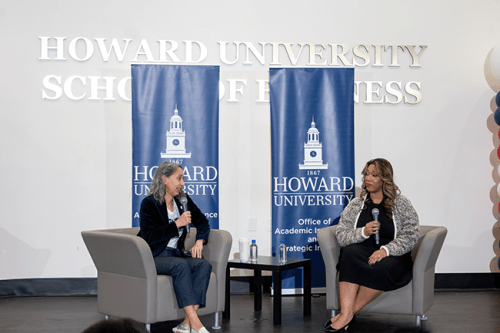Researchers, scholars, and higher education leaders from around the world recently convened at Howard University to learn how historically Black colleges and universities are key hubs for cultural exchange, social justice, and educational innovation. During their visit, the group explored key cultural and historical landmarks on Howard's campus. They also participated in seminars and working sessions designed to foster collaboration and international partnerships. Participants represented countries including Argentina, Brazil, Cameroon, Chile, El Salvador, Ethiopia, Georgia, Germany, Ghana, India, Italy, Kenya, Kosovo, Mexico, Peru, Philippines, Poland, Senegal, South Africa, Spain, Taiwan, Tanzania, Thailan, United Kingdom, and Vietnam. The visit was facilitated by Howard’s Ralph J. Bunche International Affairs Center, which promotes global understanding, peace, and academic dialogue.

The participants were Fulbright Scholars, part of the U.S. government’s flagship cultural exchange program. The Fulbright Program provides grants for college faculty, administrators, researchers, and other professionals to study, teach, conduct research, or pursue a professional project as they exchange ideas and contribute to mutual understanding around the world. U.S. scholars are hosted in other countries and scholars from other countries are hosted in the United States. Host locations include higher education institutions, research centers and think-tanks, government bodies, and non-profit organizations. Each year some 800 faculty and professionals from around the world receive grants for advanced research and university lecturing in the United States. Grants are available to scholars from over 155 countries.
Tonija M. Hope, Ph.D., director of the Bunche Center, provided the scholars with an overview of Howard University and HBCUs more broadly and then guided the scholars on a tour of the historic campus.
"The visit to Howard University underscores how centers like the Ralph J. Bunche International Affairs Center are pivotal in shaping the future of cross-cultural understanding and collaboration,” Hope said. “Howard has a rich legacy of producing global leaders and empowering scholars from around the world to forge meaningful connections that transcend borders.”
The Ralph J. Bunche International Affairs Center honors the legacy of Dr. Ralph J. Bunche (Ll.D. '49), the founding head of Howard's political science department, who was an undersecretary-general of the United Nations, a Presidential Medal of Freedom awardee, and the first African American to receive the Nobel Peace Prize for his mediation efforts in the Middle East. His commitment to diplomacy, equity, and human rights serves as a foundation for the center’s global outreach programs, which mirror the ideals of the Fulbright Program itself.

For many scholars, this experience served as a reminder of the important intersection between academic institutions and social justice. Abebe Getahun Gubale, an Ethiopian aquatic biologist, expressed his pride in visiting Howard, an institution that has nurtured numerous prominent figures of African heritage.
He said his research on fisheries and agriculture, particularly in relation to the Nile River, has taken him to universities like UC San Diego and Prairie View A&M, an HBCU in Texas.
“It’s very important to provide opportunities for less privileged communities,” Gubale said. “At Prairie View, the students are confident in an environment that’s diverse, with instructors from countries like India, Pakistan, and Jamaica."
During their visit, the group explored key areas of Howard's campus, including Founders Library. The home of Howard Law School from 1944 to 1955, Founders provided the space where the legal strategy was drafted that led to the Brown v. Board of Education Supreme Court case, which resulted in the outlawing of segregation. The group was also given a guided tour of the photo exhibit, “Revolution and Image-Making in Postcolonial Ghana,” by Moorland-Spingarn Research Center Director Benjamin Talton, Ph.D. The exhibit showcases the works of Ghanaian photographer Gerald Annan-Forson and highlights the powerful role of visual art in shaping postcolonial African identities.
At institutions across the country, the scholars are exploring a range of subject areas, including education, computer science, art, art history, psychology, physics, anthropology, social sciences, business, marketing, library science, dental sciences, political science, history, engineering, Mathematics, linguistics, economics, biology, public health, music studies, and communications.
David Svintradze, a physicist from the country of Georgia, highlighted the value of the Fulbright seminar in providing him with the opportunity to network with researchers globally.
"It’s been valuable networking with people from every continent, learning about different systems of education and research," he said.





